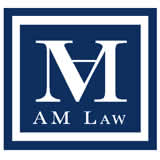Closing a residential or commercial loan can be a complicated and lengthy process. Residential loan closings will vary, but financial purchase details and a title will need to be settled before any loan is made. A real estate attorney will ensure that you’re new property is free and clear of title defects. They will also review other primary closing documents such as the Mortgage Note, Mortgage, and Settlement Statement, commonly referred to as the HUD.
A commercial loan requires many more documents than a residential loan. An attorney can help review, the following commercial loan documents:
- Operating Statements for the past 3 years reflecting income and expenses of operations, including cost and timing of scheduled capital improvements
- Certified copies of all Leases
- A Certified Rent Roll
- Estoppel Certificates signed by each tenant
- An ALTA lender’s title insurance policy with required endorsements;
- Copies of all documents of record which are to remain as encumbrances following closing, including all easements, restrictions, party-wall agreements and other similar items
- A current Plat of Survey prepared in accordance with 2011 Minimum Standard Detail Requirements for ALTA/ACSM Land Title Surveys certified to the lender, Buyer and the title insurer, including items 1 through 4, 6(a), 7(a), 7(b)(1), 8 through 10(a), 11(a) and 14 from the Surveyor’s “Optional Survey Responsibilities and Specifications” referred to as “Table A”
- A satisfactory Environmental Site Evaluation Report (Phase I Audit) and, if appropriate under the circumstances, a Phase 2 Audit, to demonstrate the property is not burdened with any recognized environmental defect
- Site Improvements Inspection Report
